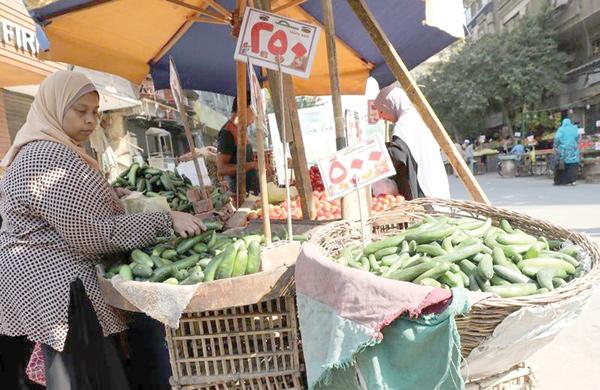You are here
Egypt’s prime minister seeks to justify fuel subsidy cuts
By Agencies - Jul 05,2014 - Last updated at Jul 05,2014
CAIRO — Egypt's prime minister has sought to justify politically sensitive subsidy cuts on fuel and natural gas which took effect on Saturday, saying they were a necessary part of fixing an economy hammered by three years of turmoil.
Egypt had overnight on Friday slashed its subsidies for car fuel and natural gas, increasing their prices by more than 70 per cent.
The move prompted scattered protests, with several minibus drivers for instance protesting in the cities of Suez and Ismailiya and demanding a rise in fares to compensate for increased fuel costs. Police fired tear gas to disperse them.
However the move, taken during the Islamic holy month of Ramadan, when inflation is usually high due to increased food consumption, showed the government's determination to reduce the subsidies which eat up to a fifth of its annual budget.
"The decisions were taken after delicate studies," Prime Minister Ibrahim Mehleb told at a press conference on Saturday. "How can I achieve social justice while I am subsidising for the rich on the expense of the poor?”
"We are at war, we are fighting poverty and ignorance," Mehleb said, adding that money saved from the subsidy cuts would go into the education and health sectors.
Mehleb's Cabinet was appointed last month by newly elected President Abdel Fattah Al Sisi, who also issued a 10 per cent tax on stock market gains and increased the price of electricity.
The economic austerity measures are part of Egypt's attempts to reduce its deficit to 10 per cent of the gross domestic product in the next fiscal year, from an expected shortfall of 12 per cent in 2013/14.
Such efforts, particularly those applying to basic items such as fuel, could trigger a backlash from many of Egypt's 86 million people, of whom half are poor and illiterate.
But some analysts welcomed the subsidy reductions.
"It's a very positive first step and clear statement of intent. These moves have been talked about for a decade," said Simon Williams, Middle East chief economist at HSBC.
"They won't resolve the budget imbalances on their own, but it's encouraging to see a new regime finally putting them into practice," Williams added.
Some car drivers and users of public transportation in Cairo complained about the rise in fuel prices and many gas stations were deserted.
"This is unfair, already the prices of everything is increasing, so why does the government do that and increase fuel prices now?" said Ibrahim Ali, a public sector employee and owner of a car.
"The people won't like that, this could turn the people angry and against the state," he added.
Egypt's government drastically raised fuel prices late Friday to tackle a bloated subsidy system, in a potentially unpopular move that might blow back on newly elected President Abdel Fattah Al Sisi.
The government raised the price of 92 octane gasoline, which sold at 1.85 pounds ($0.36) a litre, to 2.6 pounds, and 80 octane gas from 0.9 pounds to 1.6 pounds a litre, the official MENA news agency reported.
The price of diesel was raised from 1.1 pounds to 1.8 per litre, the agency reported.
The state spends more than 30 per cent of its budget on fuel and food subsidies, in a country were nearly 40 per cent of the population — some 34 million people — hover around the poverty line.
Mehleb said the increase would not affect food prices, Al Ahram newspaper reported.
He called on "Egyptians to come together and understand the challenges of this period, and to stand with the government," the newspaper said.
Sisi preaches a message of austerity and self sacrifice to restore the economy and he has launched a donation drive and announced he would give away part of his salary and personal wealth, while urging Egyptians to bike and walk more to save on gas.
The economy has been propped up by billions of dollars in Gulf Arab state aid after the overthrow of the Morsi, whom regional powerhouses such as Saudi Arabia and the United Arab Emirates viewed with suspicion.
Morsi's Muslim Brotherhood movement, still holds near daily protests it hopes will grow with increasing economic discontent.
An early 2011 uprising that ousted veteran dictator Hosni Mubarak sent the economy into a downward spiral.
Related Articles
Egypt raised the sales tax on cigarettes by up to 120 per cent on Sunday and doubled the tax on alcohol as part of a series of measures to curb the budget deficit and reform the economy.
The economist behind a plan to unlock at least $380 billion worth of assets from Egypt's black market says President Abdel Fattah Al Sisi must first restore another asset that has depreciated over the years: The trust of a wary public.
CAIRO — Egypt's President Abdel Fattah Al Sisi has raised the country's minimum wage to 2,000 Egyptian pounds ($116) a month from 1,200 poun












